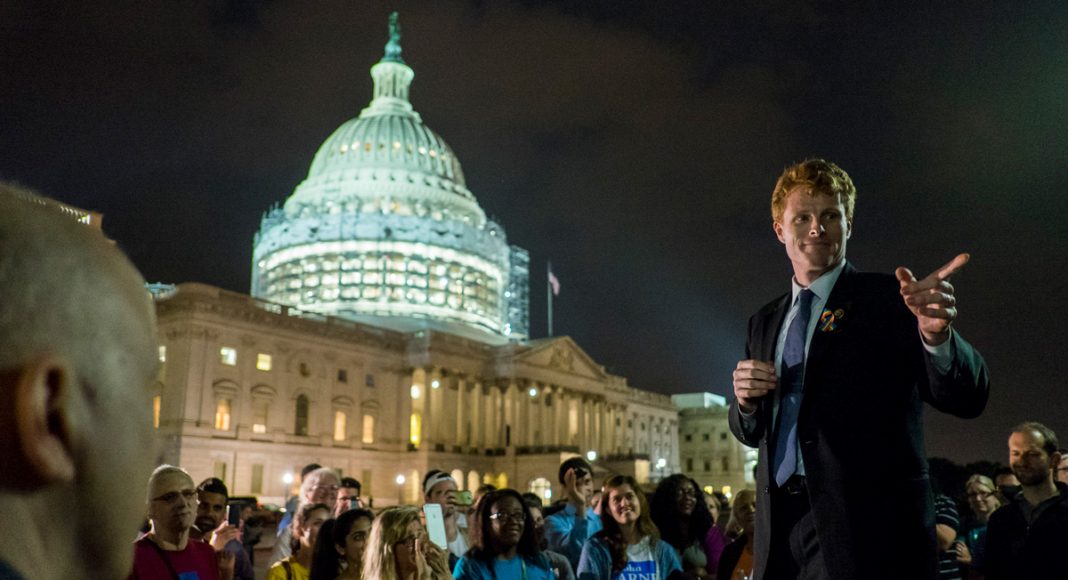In the world of politics, the Kennedy name is held in high regard. The latest rising figure from the legendary family is Joe Kennedy III, a Massachusetts congressman surging upwards through the Democratic Party. But he’s faced scrutiny recently for his views on cannabis legalization, a stance he has refused to back down from.
It’s also a stance he repeated during a guest appearance on “Jimmy Kimmel Live!” recently, stating:
I do have concerns about what the increased availability of marijuana means for adolescents, what it means for folks who struggle with addiction, and mental health.
Kennedy also stressed a “thoughtful” approach to widespread cannabis legalization, while conceding that Attorney General Jeff Sessions’ policies have only convoluted the situation.
“I acknowledge that I’m an outlier on this, I just think it’s something we want to be careful and deliberate about as we move forward,” Kennedy said.
That stance, under the soft lights of late-night TV, seems like a docile and cautious one from Kennedy. But it only tells part of the story. At a time when the Democrat Party has slowly embraced marijuana, Kennedy has voted against cannabis initiatives at seemingly every opportunity.
As Tom Angell astutely documented at Marijuana Moment, Kennedy has voted to permit the DEA arresting medical marijuana patients and providers, voted three times against increasing military veterans’ access to medical marijuana, and even voted against a proposal that would protect children using non-psychoactive cannabidiol extracts to treat seizures from DEA persecution. In its congressional scorecard, The National Organization for the Reform of Marijuana Laws (NORML) gave Kennedy a “D.”
Two months before Massachusetts voters opted to legalize recreational marijuana in 2016, Kennedy flat-out opposed it. “I don’t think marijuana should be legalized,” he told Boston magazine at the time.
In public appearances, Kennedy continuously beats the same drums of worries concerning mental health, addiction, and public safety without citing any specific research or figures. He was interviewed on Ezra Klein’s podcast and bemoaned how decriminalization in Massachusetts prohibits officers from searching cars that smell like marijuana.
Klein later argued the change was probably for the good, given the racial disparities that exist in the legal system’s treatment of marijuana, which Kennedy conceded was a good point. Another criminal justice concern Kennedy expressed was the lack of an admissible roadside test to determine whether a driver is operating under the influence of marijuana, which he said would be an increased threat with more widespread usage.
“I think it’s worth us understanding, ‘Do we have the tools that are necessary to keep the communities safe?’ as we try to actually go through and make this a substance that is far more widespread,” he told Klein.
Kennedy’s “concerns” often seem closer to dogwhistle trolling than informed stances on the matter. He seems eager to cite all the potential pitfalls of legalizing marijuana—many of which this website has showcased as standing on flimsy footing—without acknowledging research or scientific understanding to the contrary. As he echoes tired stances of “reefer madness,” he almost seems stuck in the past. With a last name like Kennedy, maybe that shouldn’t be much of a surprise.


